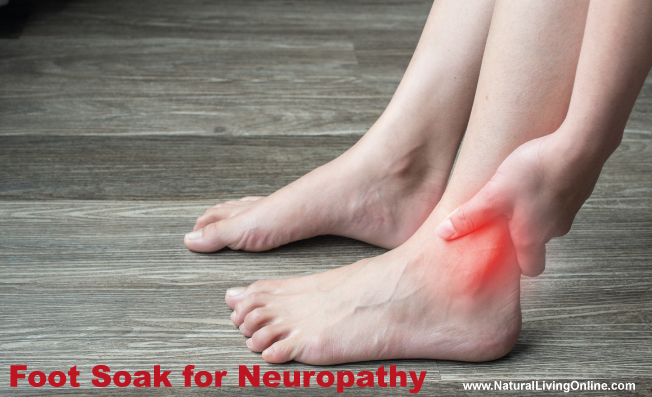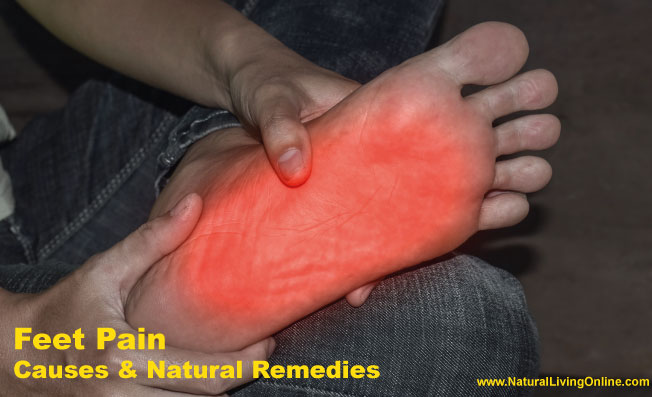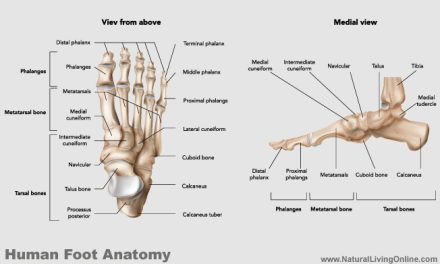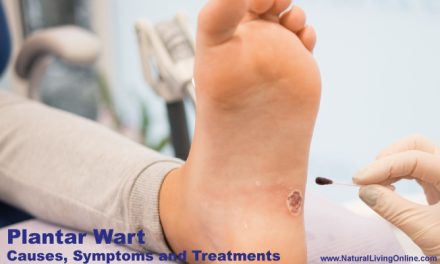If you have neuropathy, you know how painful and uncomfortable it can be to walk or stand for extended periods. Neuropathy is a condition that affects the peripheral nerves, causing tingling, numbness, and burning sensations in the feet and hands. It can be caused by various factors, such as diabetes, chemotherapy, or nerve damage. While there is no cure for neuropathy, there are ways to manage the symptoms and improve your quality of life. One of these ways is through foot soaks, which can help soothe your feet and ease your pain. In this article, we’ll explore the best foot soaks for neuropathy and how to prepare and use them.
Types of Neuropathy
There are several different types of neuropathy, each with their own set of symptoms and causes. Some of the most common types of neuropathy include:
Peripheral neuropathy
This type of neuropathy affects the nerves that carry information to and from the brain and spinal cord to the rest of the body. It’s often caused by conditions such as diabetes, alcohol abuse, and chemotherapy.
Autonomic neuropathy
This type of neuropathy affects the nerves that control involuntary bodily functions such as blood pressure, heart rate, and digestion. It’s often caused by conditions such as diabetes and certain autoimmune disorders.
Focal neuropathy
This type of neuropathy affects a specific nerve or group of nerves, causing sudden weakness or pain. It’s often caused by trauma or compression of the affected nerve.
Proximal neuropathy
This type of neuropathy affects the nerves in the hips, thighs, or buttocks, causing weakness and pain. It’s often caused by conditions such as diabetes.
Causes of Neuropathy
Neuropathy can be caused by a variety of factors, including:
Diabetes: High blood sugar levels can cause peripheral nerve damage, leading to diabetic peripheral neuropathy.
Chemotherapy: Certain chemotherapy drugs can cause nerve damage.
Alcohol abuse: Excessive alcohol consumption can cause nerve damage.
Infections: Some infections, such as shingles and HIV, can cause neuropathy.
Inherited disorders: Some people are born with genetic mutations that can cause neuropathy.
Trauma: Physical injury or trauma to the nerves can cause neuropathy.
Symptoms of Neuropathy
The symptoms of neuropathy can vary depending on the type and severity of the condition. Some common symptoms include:
- Tingling or numbness in the hands or feet
- Burning pain
- Sensitivity to touch
- Muscle weakness
- Loss of reflexes
- Difficulty walking or balancing
Benefits of Foot Soaks for Neuropathy
Foot bath is a simple and effective way to help manage and treat neuropathy symptoms, particularly those related to the feet. Neuropathy can cause numbness, tingling, and pain in the feet, and foot soaks can help alleviate these symptoms in several ways:
Improves circulation
Warm water foot soak can help improve blood circulation in the feet by dilating blood vessels, increasing blood flow, and reducing swelling. This improved circulation can help deliver oxygen and nutrients to the nerves in the feet, which can help improve their function and reduce pain and numbness.
Relieves pain
Many foot bath ingredients, such as Epsom salt, baking soda, and essential oils, have pain-relieving properties that can help alleviate neuropathy-related foot pain. Epsom salt, for example, contains magnesium, which is known for pain reduction and reduce inflammation.
Reduces stress
Foot soaks can also help reduce stress, which can worsen neuropathy symptoms. The warm water and relaxing scents of certain foot soak ingredients, such as lavender or chamomile essential oils, can help promote relaxation and reduce stress.
Moisturizes skin
Neuropathy can cause dry and cracked skin on the feet, which can be uncomfortable and increase the risk of infection. Foot soaks can help moisturize and soften the skin, reducing the risk of complications and making the feet feel more comfortable.
Reduces inflammation
As mentioned earlier, many foot bath ingredients have anti-inflammatory properties that can help reduce inflammation in the feet pain relief.
Types of Foot Soaks
Epsom Salt Foot Soak
Epsom salt is a naturally occurring mineral compound that contains magnesium and sulfate. It has been used for centuries as a natural remedy for various conditions, including muscle pain and inflammation. Epsom salt foot soak can help reduce swelling, relieve pain, and soften calluses and dry skin. To prepare an Epsom salt foot soak, fill a basin with warm water and add 1 cup of Epsom salt. Soak your feet for 15-20 minutes, then dry them thoroughly and apply a moisturizer.
Baking Soda Foot Soak
Baking soda, or sodium bicarbonate, is a common household ingredient that has many health benefits. It can help neutralize odors, soothe skin irritations, and exfoliate dead skin cells. Baking soda foot soak can also help relieve pain and inflammation, as well as soften calluses and dry skin. To prepare a baking soda foot soak, fill a basin with warm water and add 4 tablespoons of baking soda. Soak your feet for 20-30 minutes, then rinse them with water and dry them thoroughly.
Vinegar Foot Soak
Vinegar is an acidic liquid that has many household and health uses. It can help kill bacteria, fungi, and viruses, as well as reduce inflammation and improve circulation. Vinegar foot soak can also help soften calluses and dry skin, and prevent foot odor. To prepare a vinegar foot soak, fill a basin with warm water and add 1 cup of apple cider vinegar or white vinegar. Soak your feet for 15-20 minutes, then rinse them with water and dry them thoroughly.
Essential Oil Foot Soak
Essential oils are concentrated plant extracts that have many therapeutic properties. They can help reduce diabetic neuropathy pain, inflammation, and stress, as well as promote relaxation and sleep. Essential oil foot soak can also help soften calluses and dry skin, and improve circulation. To prepare an essential oil foot soak, fill a basin with warm water and add a few drops of your favorite essential oil, such as lavender, peppermint, or eucalyptus. Soak your feet for 15-20 minutes, then rinse them with water and dry them thoroughly.
How to Prepare and Use Foot Soaks
To prepare and use foot soaks, follow these steps:
- Fill a basin with warm water. The water should be warm but not hot, as hot water can damage your skin and worsen neuropathy symptoms.
- Add your chosen foot soak ingredient(s) to the water. Follow the instructions above for each type of foot soak.
- Soak your feet for the recommended time. The recommended soaking time is usually 15-20 minutes, but it can vary depending on the foot soak and your personal preference.
- Dry your feet thoroughly after the foot soak. Use a clean towel to dry your feet completely, including between your toes. Apply a moisturizer to keep your skin hydrated and prevent dryness.
Safety Precautions and Contraindications
While foot soaks are generally safe and beneficial, there are some precautions and contraindications you should be aware of. For example:
- If you have open sores or wounds on your feet, avoid foot soaks until they heal.
- If you have sensitive skin or allergies, test the foot soak ingredients on a small area of your skin first to make sure you don’t have a reaction.
- If you have diabetes, consult with your doctor before using foot soaks, as they may affect your blood sugar levels.
- If you have high blood pressure, avoid using hot water for foot soaks, as it can increase your blood pressure.
Other Self-Care Practices for Neuropathy
Foot soaks are just one of the many self-care practices you can adopt to manage neuropathy symptoms. Other practices include:
- Proper foot hygiene: Wash your feet daily, dry them thoroughly, and wear clean, dry socks and shoes.
- Regular exercise: Engage in low-impact exercises, such as walking, swimming, or cycling, to improve circulation and reduce pain.
- Balanced diet: Eat a healthy, balanced diet rich in fruits, vegetables, whole grains, and lean protein to nourish your body and reduce inflammation.
- Avoiding smoking and alcohol: Smoking and alcohol can worsen neuropathy symptoms and delay healing. Avoid or limit them as much as possible.
Alternative Therapies for Neuropathy
Neuropathy also known as Nerve pain in feet can be challenging to treat, but there are several home remedies and lifestyle changes that can help alleviate the discomfort. In this post, we’ll explore some of the best home remedies for nerve pain in feet.
Warm water soak
A warm water soak is a simple and effective way to alleviate neuropathic pain in the feet. It helps increase blood flow to the affected area, reducing inflammation and providing relief. Fill a basin with warm water and soak your feet for 15-20 minutes, twice a day.
Epsom salt soak
Epsom salt is known for its therapeutic properties and has been used for centuries to treat a variety of conditions, including nerve pain in the feet. Add 1-2 cups of Epsom salt to a basin of warm water and soak your feet for 15-20 minutes, twice a day.
Massage
Massaging the affected area can help relieve foot pain by increasing blood flow and reducing inflammation. Use your fingers or a tennis ball to massage the affected area for 10-15 minutes, twice a day.
Exercise
Exercising regularly can help improve circulation and relieve nerve pain in the feet. Low-impact exercises such as walking, swimming, and cycling are excellent options for those with nerve pain in the feet.
Stretching
Stretching helps improve flexibility and reduces stiffness in the feet, which can help alleviate nerve pain. Perform gentle stretches for the feet, such as toe curls and ankle rotations, for 10-15 minutes, twice a day.
Yoga
Yoga is an excellent way to reduce nerve pain in the feet. It helps improve blood circulation, reduce inflammation, and alleviate stress, which can exacerbate nerve pain. Try practicing yoga poses such as downward-facing dog, half pigeon, and seated forward fold.
Essential oils
Essential oils such as lavender and peppermint can help reduce nerve pain in the feet and improve blood circulation. Mix a few drops of essential oil with a carrier oil, such as coconut oil, and massage into the affected area for 5-10 minutes, twice a day.
Ice pack
An ice pack can help reduce inflammation and provide temporary relief from nerve pain. Wrap a bag of ice or a cold pack in a towel and apply it to the affected area for 10-15 minutes, twice a day.
Turmeric
Turmeric is a natural anti-inflammatory and can help reduce nerve pain in the feet. Mix a teaspoon of turmeric powder with warm water and drink it twice a day.
Vitamin B12
Vitamin B12 is essential for nerve health and function. If you have a deficiency in this vitamin, it can worsen your neuropathy symptoms. You can increase your intake of vitamin B12 by eating foods such as fish, meat, dairy products, and fortified cereals or by taking a supplement.
Acupuncture
Acupuncture is a traditional Chinese medicine practice that involves inserting needles into specific points on the body. It is believed to help improve circulation, reduce inflammation, and relieve pain.
When using home remedies for nerve pain in feet, it’s essential to take precautions and consult with a healthcare professional if you experience severe or chronic nerve pain. Also, if you have any allergies or medical conditions, make sure to consult with your doctor before trying any home remedies.
Conclusion
Foot soaks can be a simple and effective way to soothe your feet and ease your neuropathy symptoms. By trying different pain relieving foot baths ingredients and following the recommended precautions and contraindications, you can find the best foot soak for your needs and enjoy its benefits. Remember to also practice other self-care practices, such as proper foot hygiene, regular exercise, and a balanced diet, to manage your neuropathy and improve your overall health.
This website does not provide medical advice.
All information provided on this website, and on associated social media networks, including but not limited to texts, images, and numbers are for general information purpose only. It is not intended as medical advice and it does not include all possible precautions, side effects, or interactions that may occur. Neither NaturalLivingOnline.com nor its author/founder take responsibility for how you use this information. Statements contained on NaturalLivingOnline.com have not been evaluated by the FDA. You should conduct thorough research via multiple sources and consult your physician or qualified doctor before using any essential oil or herbal remedy. Information on NaturalLivingOnline.com must not be relied upon for medical, legal, financial or other decisions.













